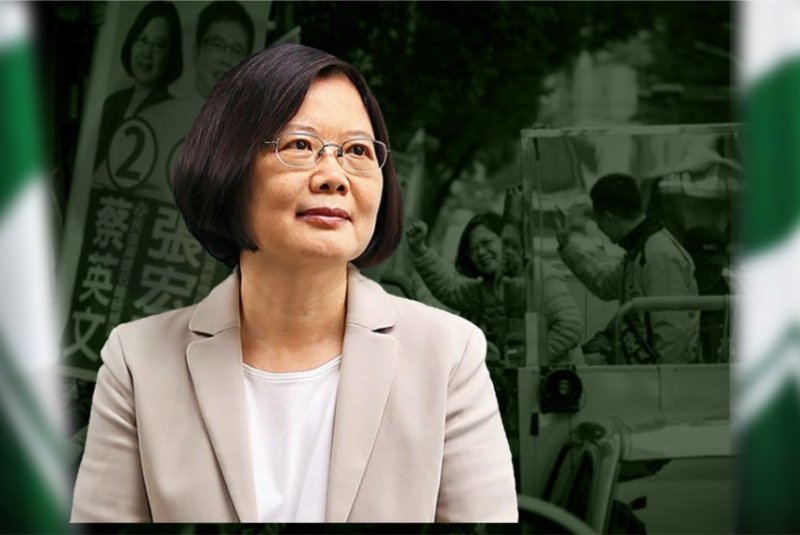Taiwan's new president Tsai Ing-wen has Beijing on edge over whether her country will seek total independence from China. Photo courtesy of Voice of America
TAIPEI, Taiwan, May 20 (UPI) -- Tsai Ing-wen was sworn in as the new president of Taiwan on Friday, becoming the island's first female leader.
Her first few weeks in office are certain to be watched closely by near neighbor China, which wants unification with Taiwan.
Tsai, 59, led the Democratic Progressive Party to a landslide win in elections in January. The DPP has traditionally leaned towards independence from China, which views Taiwan as a breakaway province.
China has threatened in the past to take the island by force if necessary and still has hundreds of missiles pointing in its direction.
During the inauguration ceremony, the new president swore the oath office in front of the national flag, before being presented with the official seal. She was then joined by outgoing President Ma Ying-jeou to wave at the crowds outside the presidential building.
In her first speech as president, Tsai said that the Taiwanese people had shown they were "committed to the defense of our freedom and democracy as a way of life."
And with reference to China, she added: "stable and peaceful development of the cross-Strait relationship must be continuously promoted." She called on both sides to "set aside the baggage of history, and engage in positive dialogue, for the benefit of the people on both sides."
Beijing is calling for Tsai to recognize that the two sides are part of one China, an agreement reached in 1992.
But so far, Tsai has stopped short of saying whether or not she intends to press ahead with unification.
With tensions rising in the South China Sea, Beijing is keen for Taiwan to be its ally rather than be aligned with rival claimants to the disputed islets in the sea.
Tsai's election success was only the second win ever for the DPP. The Kuomintang, or Nationalist Party,has been in power for most of the past 70 years. But her predecessor, Ma, lost the support of the public over his handling of the economy, the widening wealth gap, and what many view as his too friendly approach to the Beijing government.
Chinese President Xi Jinping has said the issue of unification cannot be put off indefinitely and China's military has in recent days staged ominous-looking war games along the coastline facing Taiwan.















